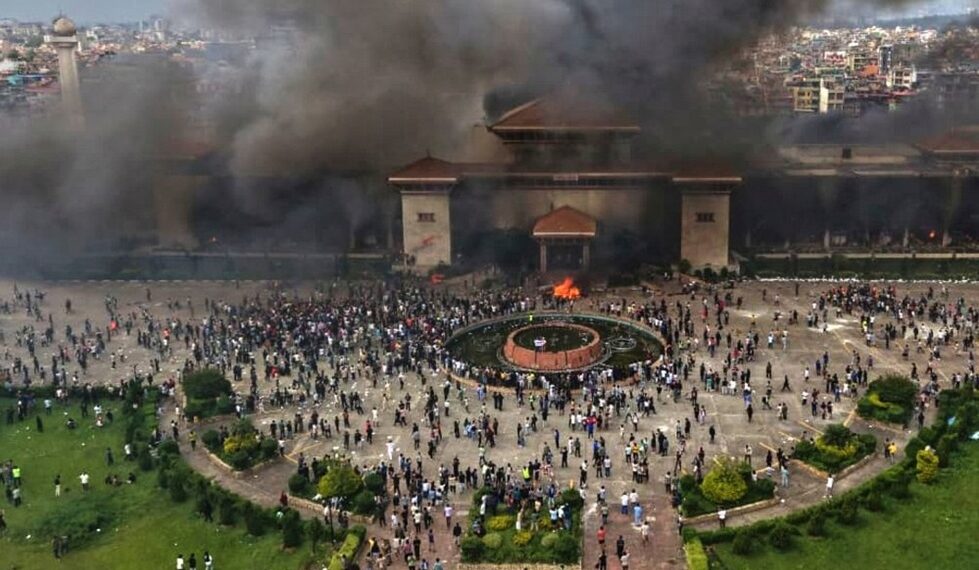Kathmandu: Nepal plunged into heightened security restrictions on Wednesday after the army took charge of law and order, imposing restrictive orders and a nationwide curfew in the wake of Prime Minister K. P. Sharma Oli’s resignation.
The measures came after violent protests swept through Kathmandu and other regions on Tuesday, with agitators torching Parliament, the President’s Office, the Prime Minister’s residence, the Supreme Court, offices of political parties, and homes of senior leaders.
At least 19 people died in clashes with security forces earlier this week, prompting Oli to step down.
The army said restrictions would remain in force until Wednesday evening, to be followed by a curfew stretching into Thursday morning.
Security officials warned that any demonstrations, arson, looting, or attacks on property and individuals would be treated as criminal acts.
Kathmandu’s usually crowded streets were deserted as soldiers patrolled key areas, fire trucks doused smouldering buildings, and residents stocked up on essentials before retreating indoors.
The army acknowledged fears of violent crimes and urged citizens not to misuse the unrest by looting or resorting to armed attacks.
Authorities confirmed that 27 people had been detained across the capital for looting and vandalism.
Cash amounting to Rs 3.37 lakh and more than 30 weapons and ammunition were recovered during operations in Chabahil, Bauddha and Gaushala.
The Nepal Army also appealed to citizens to return any arms or bullets looted during the student-led unrest, warning that misuse of weapons would invite legal action.
It further cautioned the public against wearing military uniforms during the crisis, calling it illegal and a threat to security.
Amid the turmoil, Kathmandu’s Tribhuvan International Airport was shut indefinitely, stranding hundreds of domestic and international passengers.
Airlines have asked travellers to remain in touch for updates, while authorities cited the “critical situation” for halting flight operations.
ALSO READ: ICC Women’s World Cup trophy captivates Guwahati with landmark tour
Essential services such as ambulances, fire brigades, health workers, and security personnel have been exempted from the restrictions.
The army has also urged foreign nationals stuck in Nepal to approach nearby security posts for assistance, calling on the hospitality sector to provide support.
The United Nations expressed deep concern over the deteriorating situation.
Secretary-General António Guterres urged Nepali authorities to investigate the fatalities, respect human rights, exercise restraint, and resolve the crisis through dialogue.
Despite the resignation of Oli and the lifting of a controversial social media ban on Monday night, protests have continued across Nepal, with demonstrators demanding sweeping reforms and accountability over corruption allegations.















